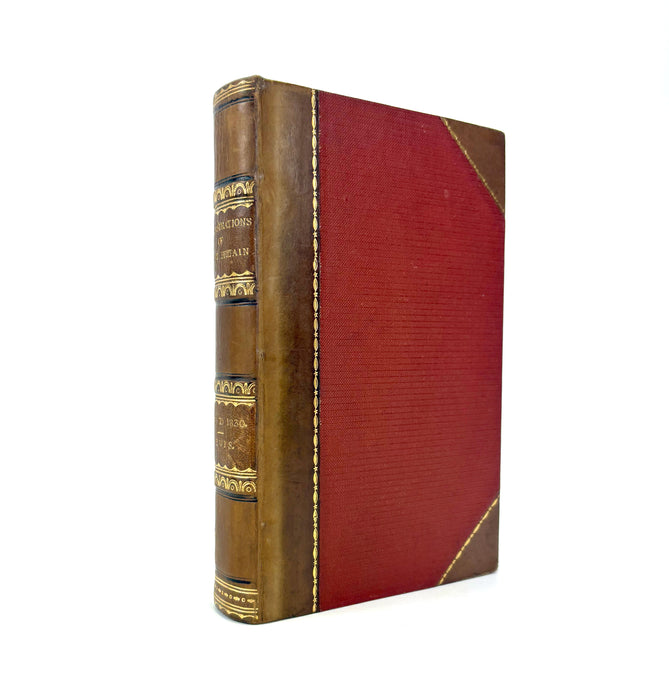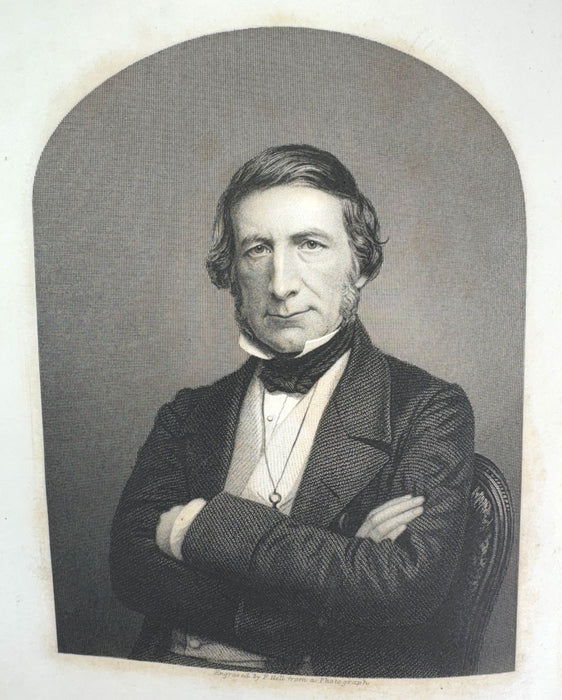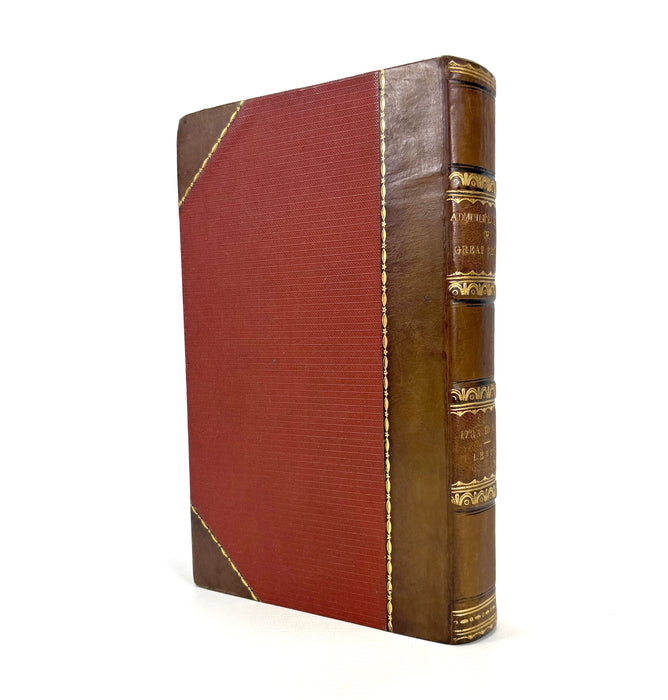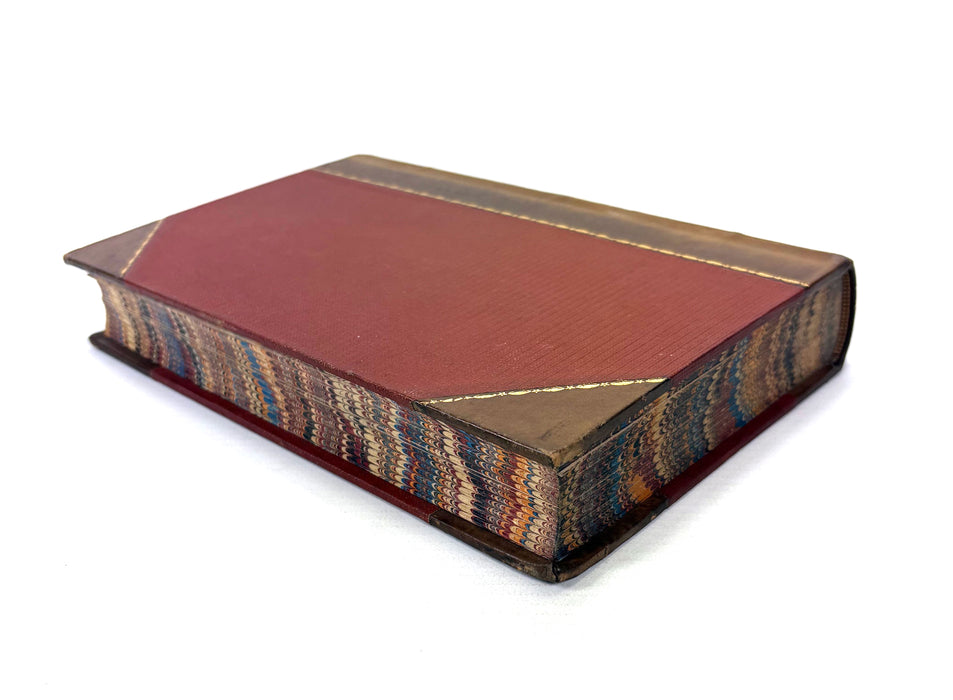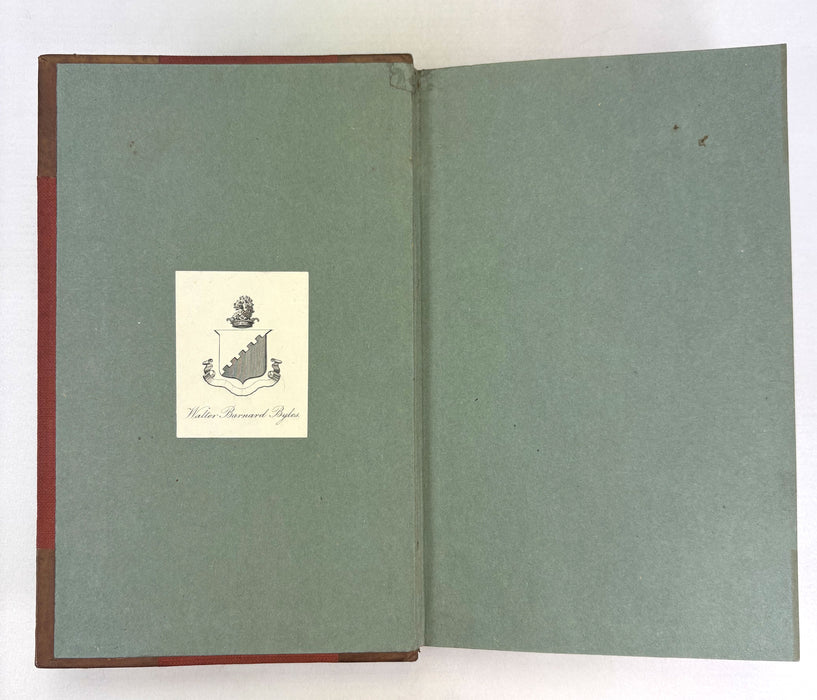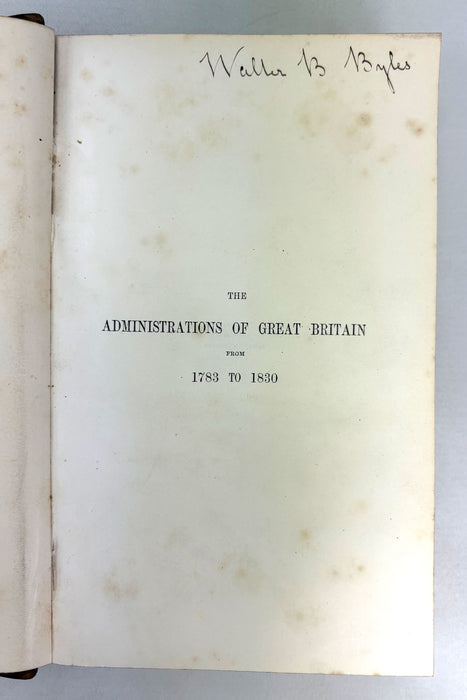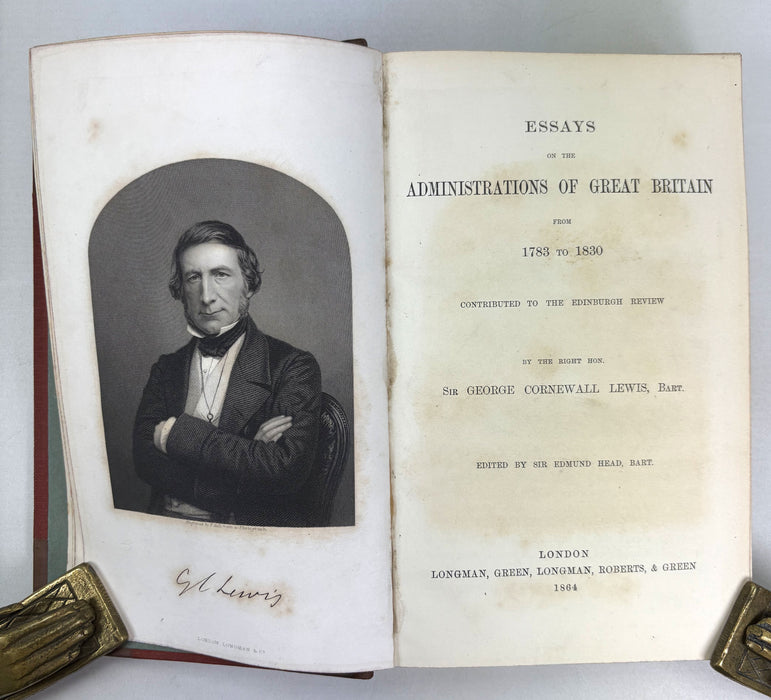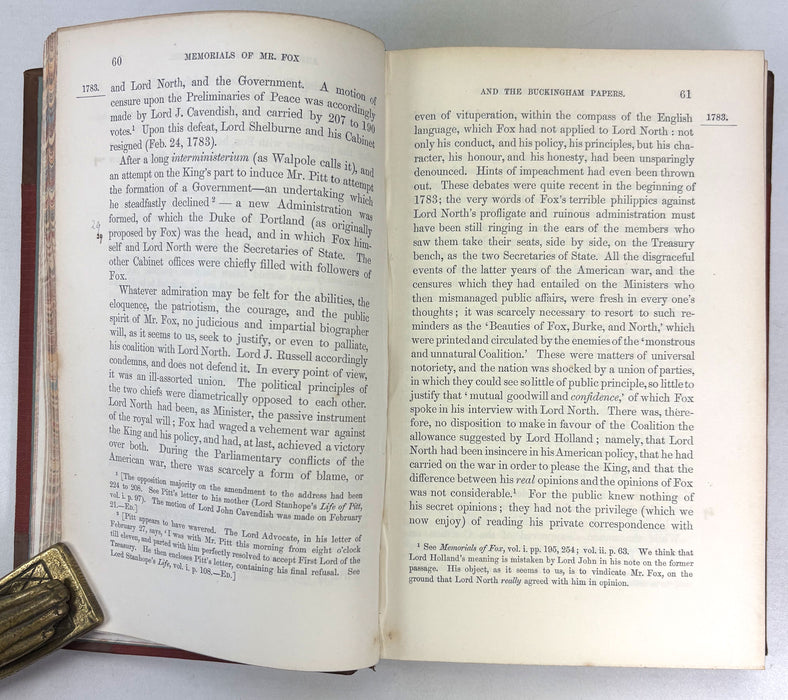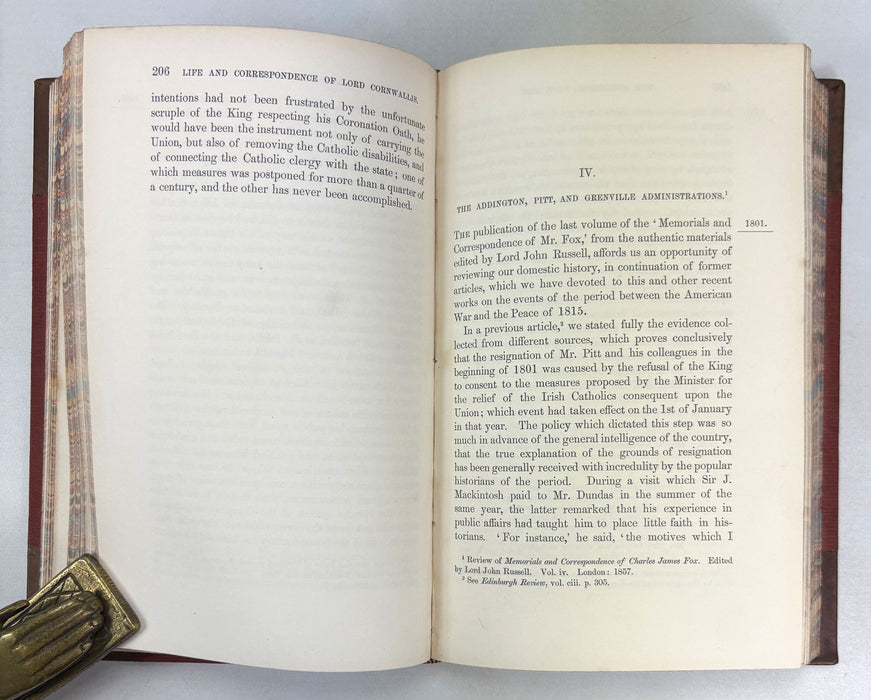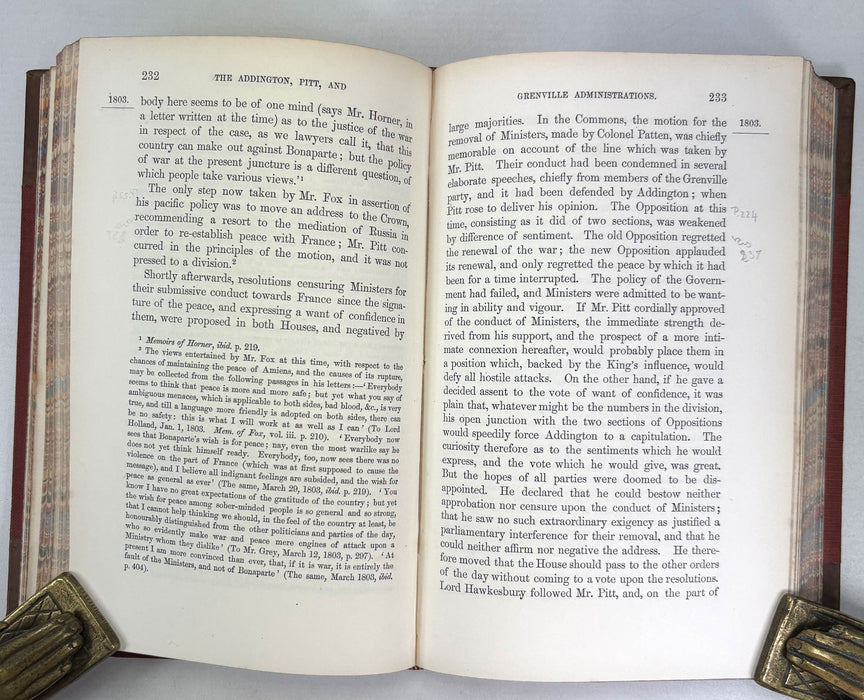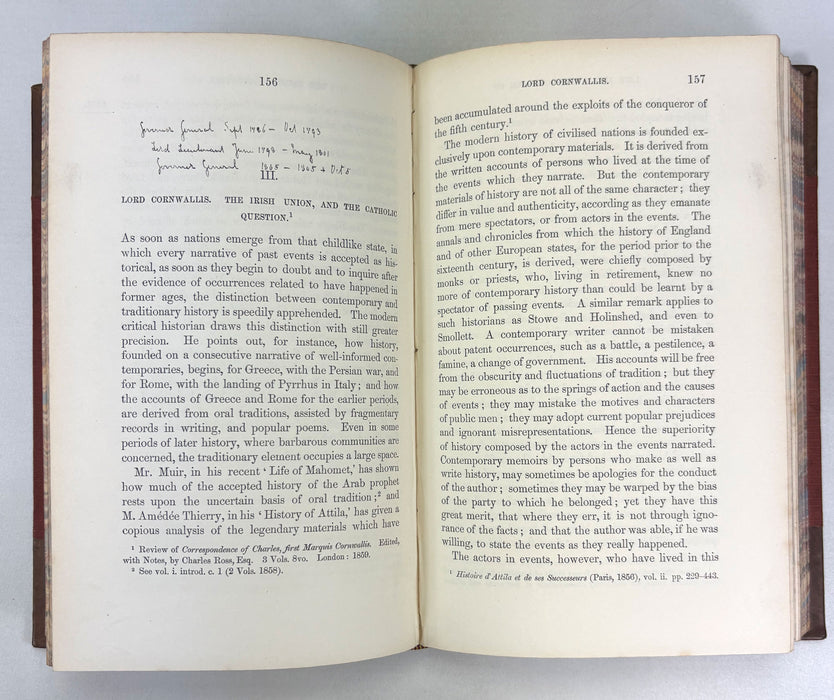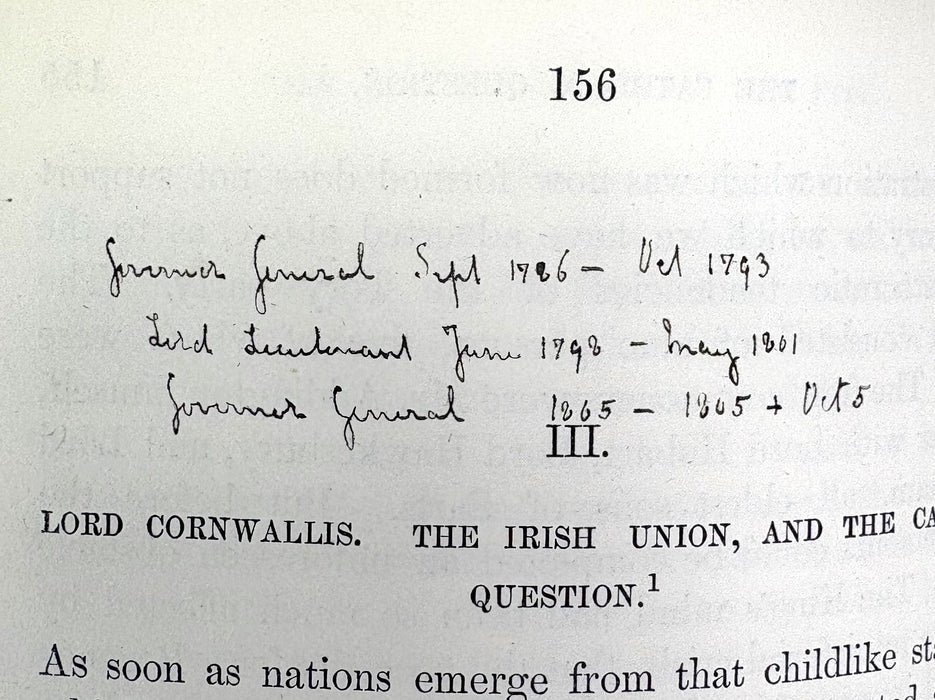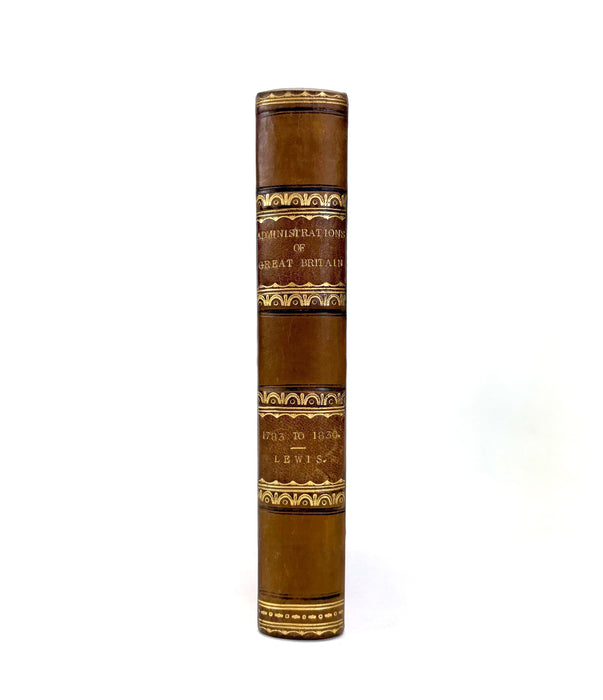
Essays on the Administrations of Great Britain from 1783-1830 Contributed to The Edinburgh Review, Sir George Cornewall Lewis, 1864
A handsome volume presenting the contributions of Sir George Cornewall Lewis to The Edinburgh Review.
The Edinburgh Review, founded in 1802 in Edinburgh by Francis Jeffrey, Sydney Smith, and Henry Brougham, was one of the most influential literary and political periodicals of the 19th century. Published quarterly and initially issued by Archibald Constable, it promoted a liberal Whig agenda, advocating for civil liberties, social reform, and economic modernization. The Review became a powerful platform for Whig politics and set new standards in literary criticism, often publishing unsigned essays with an authoritative tone. Under the long editorship of Francis Jeffrey (1803–1829), it featured contributions from figures such as Thomas Babington Macaulay, Thomas Carlyle, John Stuart Mill, and Lord Byron. Its influence shaped public discourse in Britain, sparking Tory responses like the Quarterly Review, and it remained a significant force until its first series ended in 1929.
Sir George Cornewall Lewis (1806–1863) was a distinguished British statesman, classical scholar, and public intellectual who made notable contributions to The Edinburgh Review, particularly on topics of political philosophy, constitutional theory, and classical antiquity.
Lewis wrote several influential articles for The Edinburgh Review in the 1830s and 1840s, often anonymously, as was the practice. His writings reflected his rationalist and empirical approach to politics and society, avoiding speculation in favour of documented historical understanding. He tackled topics such as the limits of political science, Roman history, and the structure of constitutional government, and was particularly sceptical of romanticised or ideological interpretations of politics.
Sir George Cornewall Lewis held several senior government posts during his political career, distinguished by his rational and cautious approach to policymaking. He served as Chancellor of the Exchequer from 1855 to 1858 under Lord Palmerston, followed by a tenure as Home Secretary from 1859 to 1861. In his final role, he was appointed Secretary of State for War from 1861 until his death in 1863. Known for his measured judgment, Lewis notably opposed British military intervention in the American Civil War, reflecting his commitment to restraint and reasoned diplomacy.
Essays on the Administrations of Great Britain from 1783-1830 Contributed to The Edinburgh Review, by The Right Hon. Sir George Cornewall Lewis, Bart. Edited by Sir Edmund Head, Bart.
Published by Longman, Green, Longman, Roberts, & Green, 1864. First edition.
Provenance: Bookplate and signature of Walter Barnard Byles (1840–1921), who was a British barrister and public servant. Walter was the son of the prominent judge Sir John Barnard Byles, was educated at Rugby School and University College, Oxford, before being called to the bar at the Inner Temple in 1866. He practiced law on the South-Eastern Circuit and remained engaged in both legal and civic affairs throughout his life. Deeply involved in public service, Byles was elected to the newly formed Middlesex County Council in 1888, representing Hayes, and later served as High Sheriff of Middlesex in 1896. He also acted as a justice of the peace, reflecting his longstanding commitment to local governance and legal administration.
Condition is near fine - a hardback bound with tan calf leather spine and corners - with raised bands and gilt decoration. Boards covered with a textured russet cloth. With mild wear and a little sunned to spine area. Plain green endpapers with bookplate to first pastedown. Soundly bound. Some spotting to endpapers and some offsetting opposite portrait frontispiece - lacking tissue guard.
The text is bright and clean throughout with occasional marginal owner's annotation. With attractive marbling to text block edges.
Text in English.
xxi (including portrait frontispiece) + (1) Contents + 500pp.
Dimensions: approximately 223mm tall x 145mm wide x 37mm deep.
Weight: approximately 988g (unpacked).

